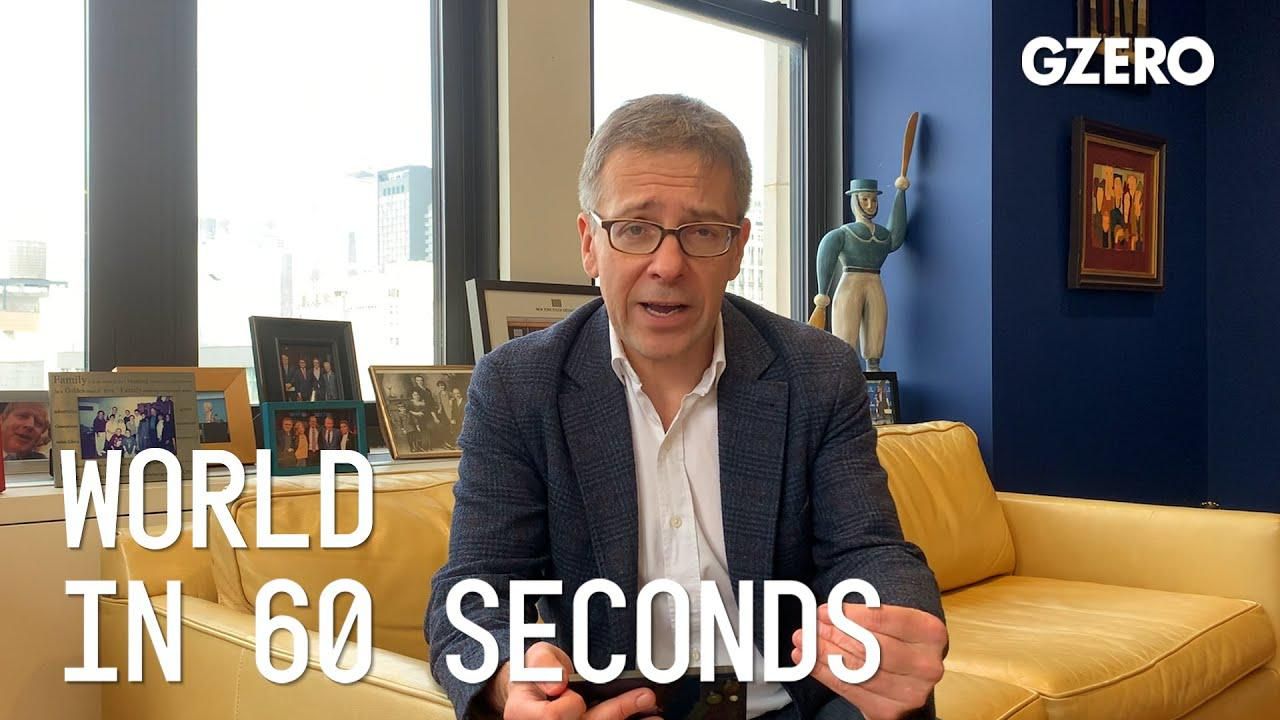With three European leaders visiting Kyiv on Tuesday, that's today, does this signify a stronger EU-Ukrainian alliance? Are Western sanctions against Russia working? With cases surging, got to talk about COVID, is China's zero-COVID policy a complete failure? Ian Bremmer shares his insights on global politics this week on World In :60.
First, with three European leaders visiting Kyiv on Tuesday, that's today, does this signify a stronger EU-Ukrainian alliance?
Oh, you bet it does. And particularly from the Eastern European countries who, frankly, see this as an incredibly important issue and are trying to get the West Europeans and the United States to do even more than they already have in terms of sanctions against Russia. It's unprecedented for the prime ministers of Poland, Slovenia, the Czech Republic to be heading to Kyiv to support Zelensky while it's being bombed. Certainly it shows that Putin and the success of his military campaign is not bringing any of the fruit for Russian security measures in Europe that Putin had clearly hoped for. Where this all goes in terms of a climbdown, we are not close to that. I'm still very unconvinced that negotiations are going to bear fruit, irrespective of that. But extraordinary statement from the East Europeans today.
Are Western sanctions against Russia working?
Well, they're working in two ways. They're working first to show a unified NATO response to President Putin's invasion of an independent Ukraine. They're also enormously punishing Russia and Putin as a consequence of that. And that does mean that if the Russians choose not to capitulate, if they refuse to remove their troops and allow Ukraine to persist independently, that they are going to suffer and that will create some instability of the Russian regime. Now, I do believe that the Russians are also going to retaliate against NATO in various ways, some economic, some cyber, some disinformation. I mean asymmetric attacks are what the Russians do. That's why this Cold War is more dangerous in some ways than the first Cold War with the Soviets. But, the fact remains, that irrespective of the level of economic sanctions, Putin is still, as of right now three weeks in, bombing the Ukrainians who have over 3 million Ukrainian refugees in Europe as a consequence. In that regard you can't say they're working.
Finally, with cases surging, got to talk about COVID, is China's zero-COVID policy a complete failure?
No, it's not a complete failure. It succeeded enormously for the Chinese for the first two years. After they admitted that they had COVID, they were able to track, to trace, to surveil, to lockdown and they were the economy that got fastest back up to speed while the rest of the world was still locked down and dealing with all of these challenging quarantines. But now you've got a population of 1.4 billion, the vast majority of whom have never gotten COVID, and they're not going to be able to say that for long unless they have massive disruptions to supply chain. As of today, almost 40 million Chinese under quarantined, small percentage, but a lot of people. And for an economy that everyone relies on, the fact that their second largest port is shut down, Shenzhen, is a really big problem.
Zero-COVID is increasingly not working for China. It was our top risk for 2022. This is why. See you all soon.
- Zelensky's fate and Ukraine's future - GZERO Media ›
- Petraeus: Putin has united his adversaries - GZERO Media ›
- Putin shouldn't test NATO unity, says analyst Alina Polyakova ... ›
- Rising gas prices will test US resolve on Russian sanctions ... ›
- The problem with China's Zero COVID strategy | GZERO World ... ›
- Ian Bremmer: Zero COVID no longer works, and China will pay a ... ›
- Ukraine dominates the dialogue in Munich - GZERO Media ›
- Ukraine dominates the dialogue in Munich - GZERO Media ›
More For You
In this Quick Take, Ian Bremmer addresses the killing of Alex Pretti at a protest in Minneapolis, calling it “a tipping point” in America’s increasingly volatile politics.
Most Popular
Who decides the boundaries for artificial intelligence, and how do governments ensure public trust? Speaking at the 2026 World Economic Forum in Davos, Arancha González Laya, Dean of the Paris School of International Affairs and former Foreign Minister of Spain, emphasized the importance of clear regulations to maintain trust in technology.
Will AI change the balance of power in the world? At the 2026 World Economic Forum in Davos, Ian Bremmer addresses how artificial intelligence could redefine global politics, human behavior, and societal stability.
Ian Bremmer sits down with Finland’s President Alexander Stubb and the IMF’s Kristalina Georgieva on the sidelines of the World Economic Forum to discuss President Trump’s Greenland threats, the state of the global economy, and the future of the transatlantic relationship.
